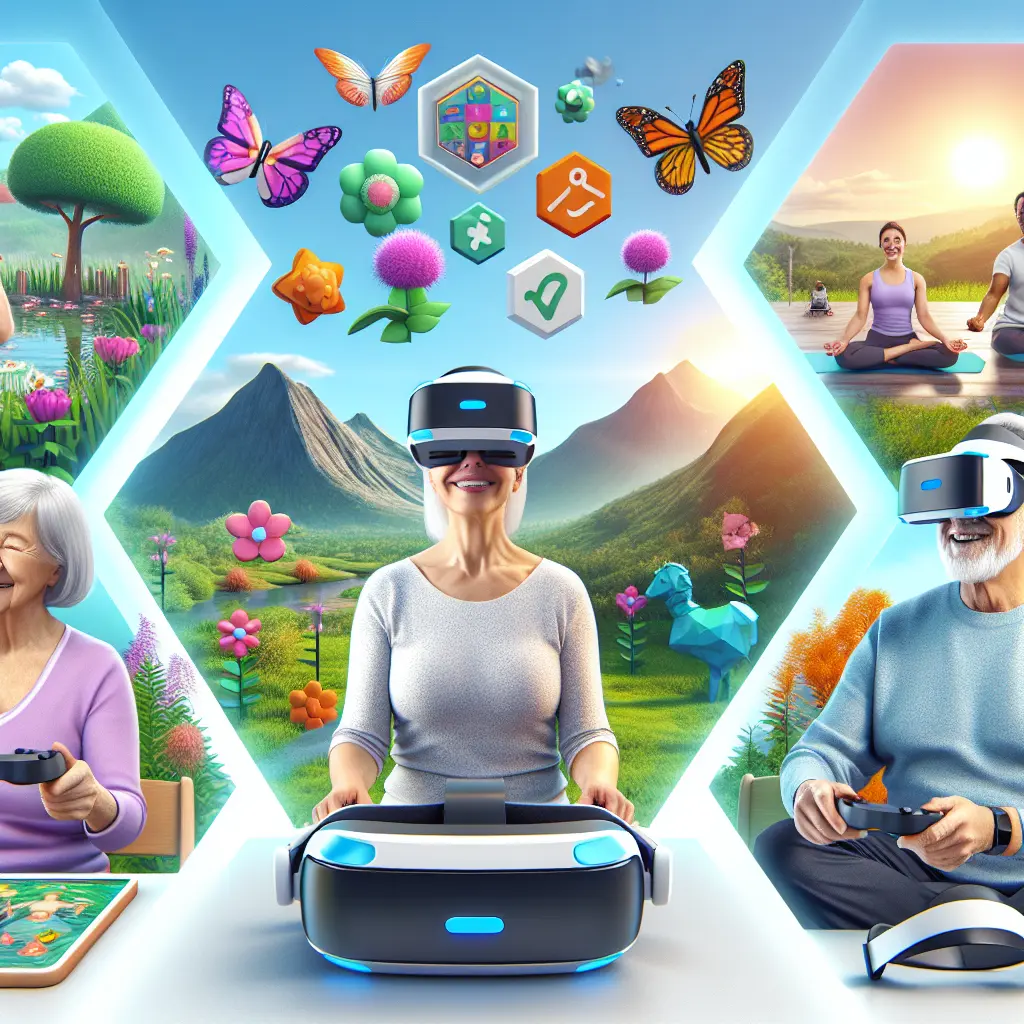
Embracing Virtual Reality for Senior Wellbeing
In an era where technology reshapes daily life, virtual reality (VR) is carving out a transformative role in enhancing senior wellbeing. As the aging population grows, so does the need for innovative solutions that address the unique challenges faced by older adults. VR for seniors offers a myriad of applications, from therapy that alleviates mental health concerns to cognitive training that helps sharpen their minds. These immersive experiences provide health benefits never before seen, bringing new hope to elderly care.
Virtual reality is revolutionizing the way we perceive elderly care, offering a wide array of applications that enhance senior wellbeing. By leveraging immersive technology, VR not only improves physical health but also addresses mental and emotional needs. Its integration into daily activities transforms senior living into a more vibrant, independent, and fulfilling experience.
Enhancing Mental Health and Cognitive Function
One of the most promising applications of VR for seniors is in mental health and cognitive function. VR therapy provides a unique approach to alleviating mental health concerns such as depression and anxiety, which are prevalent among older adults. Immersing seniors in calming and engaging environments promotes relaxation and mental clarity. A study published by the Journal of Medical Internet Research shows significant improvements in reducing symptoms of depression and anxiety among older adults through VR interventions.
Furthermore, VR cognitive training helps seniors keep their minds sharp and agile. By engaging in virtual puzzles and memory games, they can improve their cognitive abilities while having fun. These activities serve as valuable tools for delaying cognitive decline and dementia. A research paper from the University of Southern California highlights the effectiveness of VR cognitive training in enhancing memory retention and problem-solving skills among seniors.
Physical Wellbeing and Fitness
The integration of VR into senior fitness programs is another remarkable development. VR applications make exercise engaging, encouraging seniors to stay active and healthy. Through VR-based workouts, seniors can participate in virtual aerobics classes, yoga sessions, or even virtual walking tours of scenic locations without leaving their homes. This approach not only makes exercise more enjoyable but also significantly boosts motivation levels.
JubileeTV is a standout example, designed to make watching TV more accessible for seniors while offering virtual fitness programs tailored to their needs. By reducing technical barriers, JubileeTV empowers elderly users with more control and independence over their viewing experiences, ensuring they stay engaged and active at their own pace (more about JubileeTV).
Social Interaction and Emotional Wellbeing
Virtual reality plays a crucial role in combating feelings of loneliness and isolation among the elderly. VR platforms allow seniors to connect with friends and family virtually, participate in group activities, or even attend virtual events. These interactions foster a sense of community and belonging, enhancing overall emotional wellbeing.
Some innovative VR solutions create virtual worlds where seniors can meet peers with similar interests or partake in social gatherings without geographical constraints. This approach effectively bridges the gap between physical distance and social engagement, making it easier for seniors to maintain meaningful relationships.
Dementia Care and Rehabilitation
Virtual reality dementia care is emerging as a beacon of hope for individuals battling cognitive decline. Tailored VR experiences can stimulate memory recall and enhance cognitive function, offering therapeutic benefits to those with dementia. Engaging seniors in familiar environments or past experiences through VR simulations can help evoke memories and emotions that might otherwise remain inaccessible.
Additionally, VR rehabilitation for seniors recovering from physical setbacks has proven highly effective. Immersive technology in elderly care provides tailored rehabilitation exercises that aid recovery while minimizing discomfort. Seniors recovering from surgeries or injuries can engage in virtual physical therapy sessions designed to improve mobility and strength at a comfortable pace.
Privacy and Safety Considerations
As with any technology, privacy concerns are paramount when implementing VR applications for elderly care. Innovations like PrivacyLens—a new camera technology that turns people into stick figures—demonstrate efforts to protect user privacy in the age of smart devices (learn more about PrivacyLens). Such advancements ensure that seniors can enjoy the benefits of VR without compromising their personal privacy or security.
Conclusion: Embracing the Future of Senior Wellbeing with Virtual Reality
The future of VR senior living holds immense potential. As the aging population continues to grow, embracing these innovations will be crucial in addressing the unique challenges faced by older adults. VR initiatives are already paving the way for holistic wellness solutions encompassing both physical and emotional health.
With ongoing research and development, we can anticipate even more groundbreaking VR applications that further enhance senior wellbeing. By integrating VR applications into elderly care, we are crafting an environment where seniors thrive physically, mentally, and emotionally. For more insights on how technology impacts senior care, explore this comprehensive guide.
As we continue exploring immersive technology's possibilities in elderly care, I encourage you to share your thoughts and experiences. How has technology impacted the seniors in your life? Let’s continue this conversation on harnessing these advancements for a brighter future.
Warm regards,
Martin Caldwell